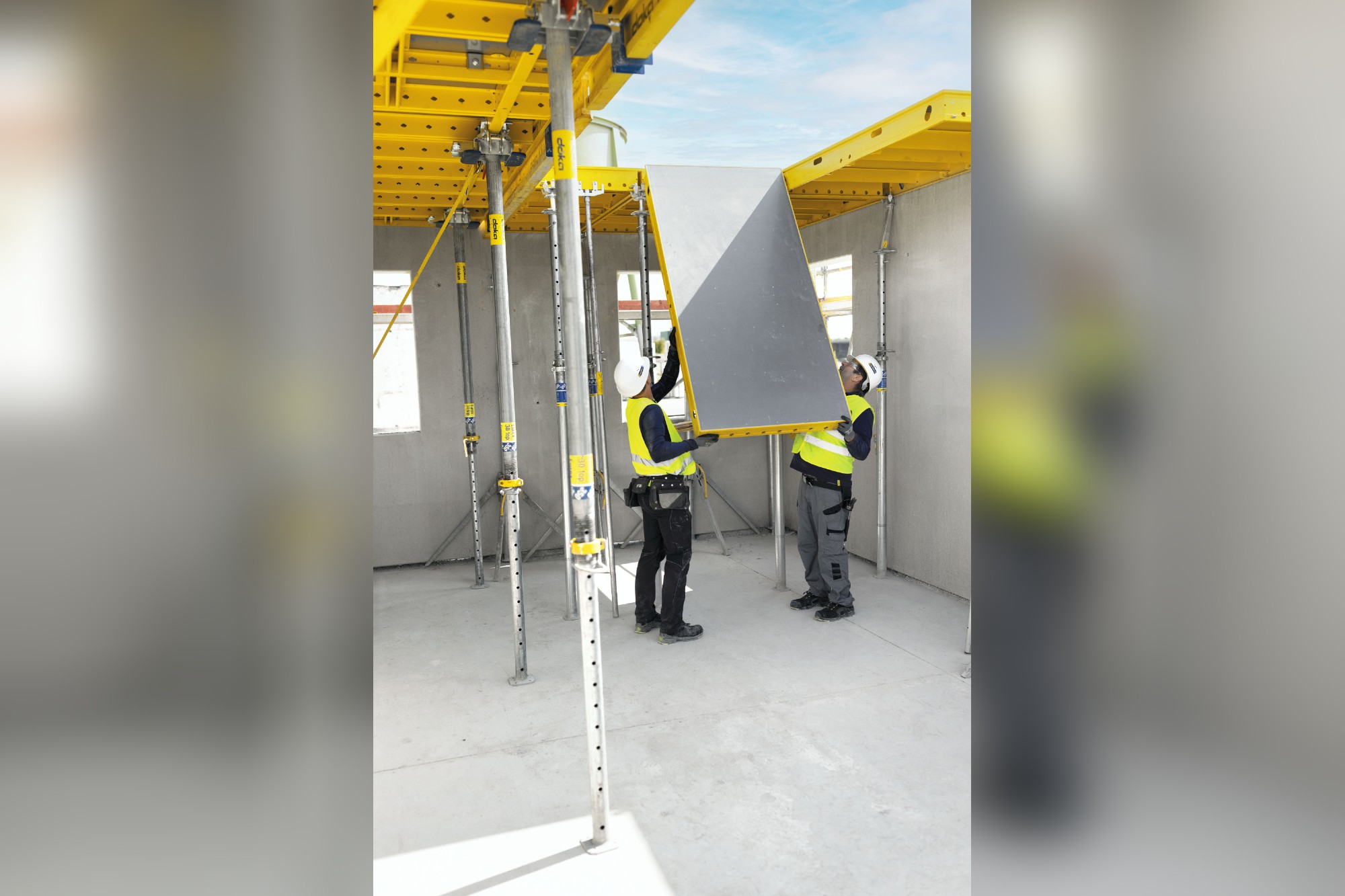Doka pioneers carbon footprint criteria for scaffolding
By Edit Team | May 29, 2024 6:08 pm SHARE

One of the top providers of formwork and scaffolding worldwide, Doka is proving once more that it is a trailblazer in the sustainability space by significantly contributing to the creation of minimum standards for figuring out Product Carbon Footprints (PCFs).
This is a significant development for the formwork and scaffolding sector and a step closer to decarbonising the construction industry. A product’s total greenhouse gas emissions (GHG) throughout all relevant material life cycle phases are measured by its product carbon footprint (PCF). It is a crucial tool for determining levers to cut emissions along the value chain and evaluating a product’s overall climate effect.
“Competitiveness, sustainability and transparency are becoming increasingly intertwined, and valid data is key to sustainable decision-making. Two years ago, we set new standards in the formwork and scaffolding industry by fully calculating the product carbon footprint of more than 7,000 Doka products. We are proud that we have now also been able to make a significant contribution to establishing minimum standards in the industry for the first time,” says Robert Hauser, CEO of Doka.
The background: A working group was established by the Güteschutzverband Betonschalungen Europa e.V. (GSV), an association of European producers, suppliers, and users of scaffolding and formwork systems, to create a standard for the transparent quantification of a GSV Product Carbon Footprint (GSV PCF-Standard) for the scaffolding and formwork industry. After rigorous collaboration, the agreement on minimum criteria has now been published, less than a year after it was reached. By taking this action, Doka and its market partners are contributing to the establishment of GHG emission transparency as a norm throughout the value chain in addition to creating a new industry standard.
“We are delighted to have been able to contribute our many years of experience and our calculation methodology to the GSV joint working group. This industry-wide agreement between leading manufacturers brings us a big step closer to being able to better compare product carbon footprints, and thus to create a level playing field within the formwork and scaffolding industry,” adds Julia Weber, Head of Sustainability at Doka. All PCF data for Doka formwork already complies with the GSV-PCF standard.
Focus on customer benefits
Doka has been giving its consumers clear information about the greenhouse gas emissions of their products for over two years. “When it comes to sustainability, facts count, not gut feelings,” says Weber. This is the exact emphasis of Doka’s PCF programme, which seeks to assist clients with their sustainability endeavours, ranging from determining their corporate carbon footprint (Scope 3 emissions) to making more environmentally friendly purchasing decisions and public tenders with CO2 budgets.
At the same time, the PCF is an important pillar of Doka’s sustainability strategy. “We are consistently pursuing our goal of net-zero emissions by 2040, and in the long term, we are striving for ever-lower emission product strategies. The data obtained from the Product Carbon Footprint is already an integral part of the innovation process at Doka,” says Weber. “After all, transparent data is the key to sustainable construction.”
For more information, visit: https://www.doka.com/in/index
Cookie Consent
We use cookies to personalize your experience. By continuing to visit this website you agree to our Terms & Conditions, Privacy Policy and Cookie Policy.




































-20240213125207.png)

























